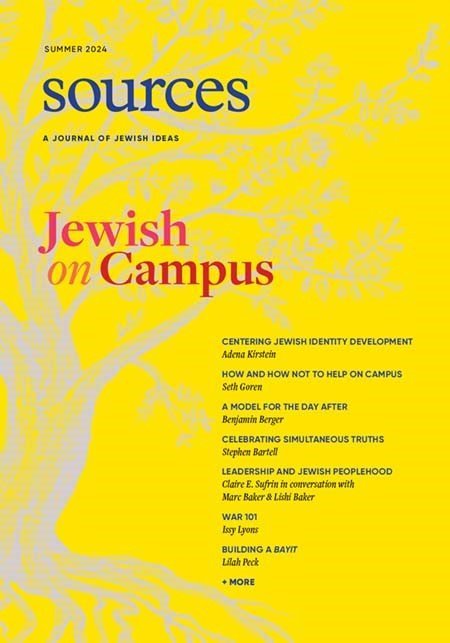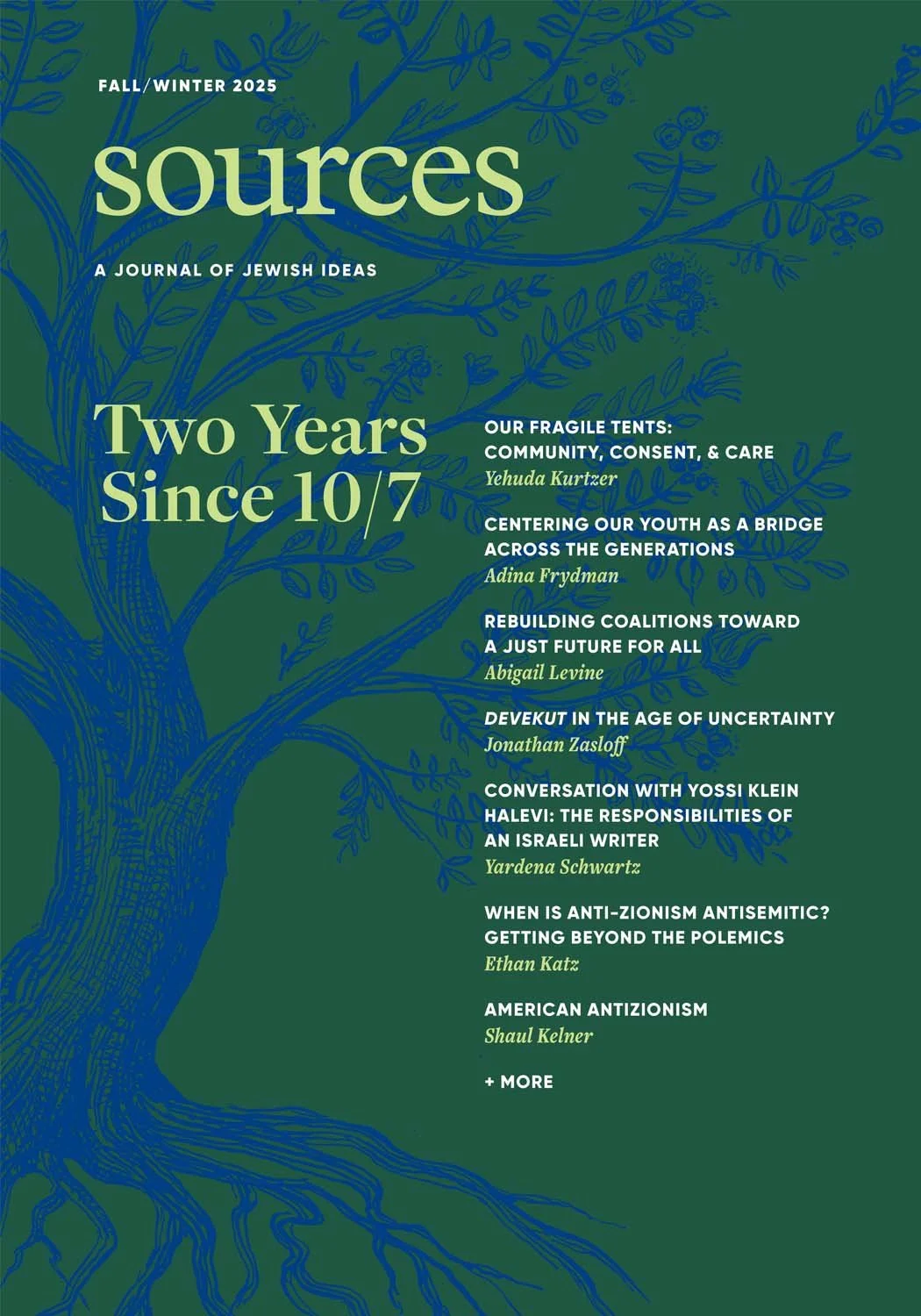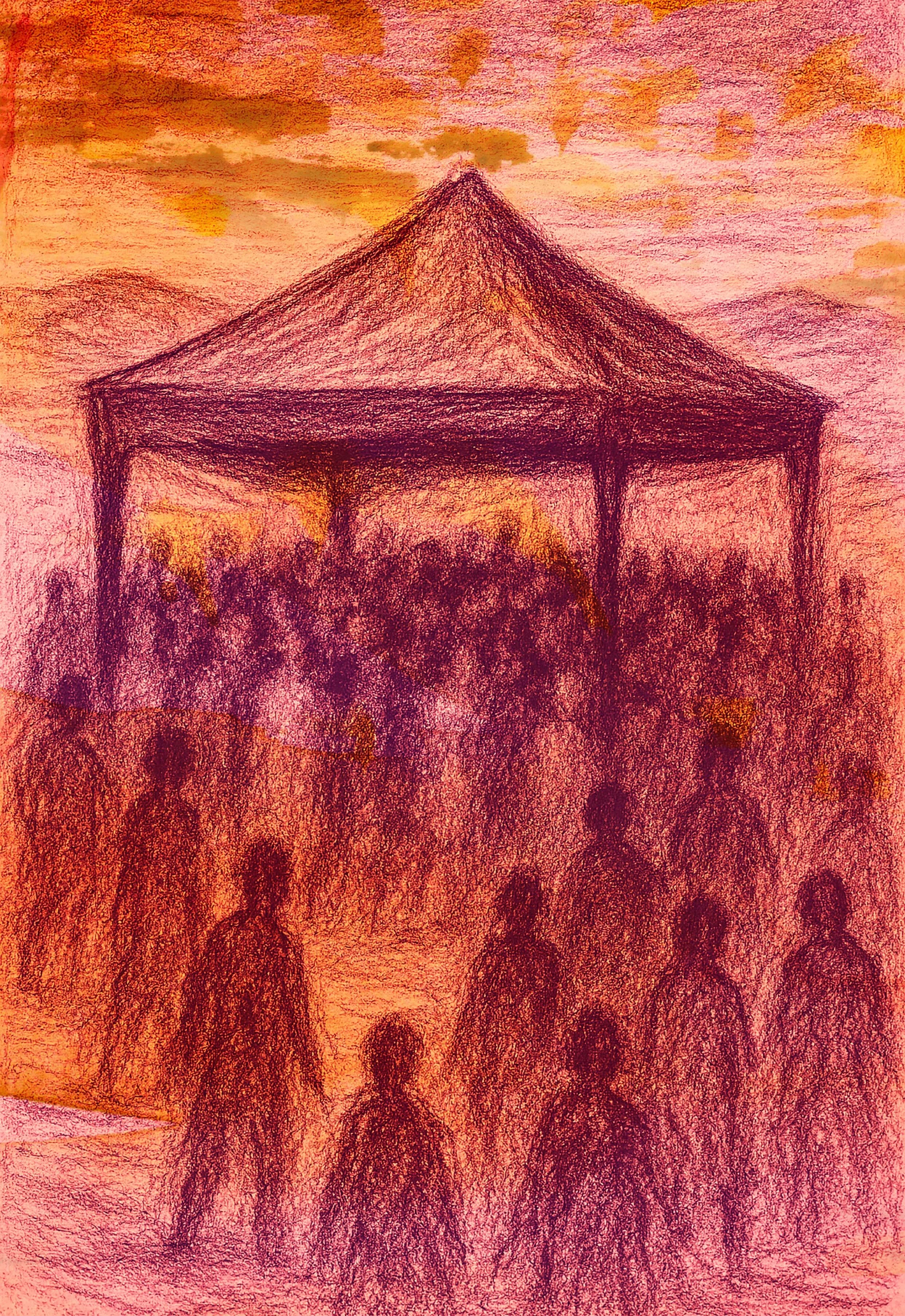War 101
STUDENT VOICE
Issy Lyons
Issy Lyons is a student in the Dual Degree Program between Tel Aviv University and Columbia University. After graduating high school in Hong Kong in 2020, she made aliyah and was drafted into a combat intelligence unit in the Israeli Defense Forces.
December 2023
In college, a 101 class is a beginner class, specifically designed for students with no previous experience. It’s the type of class you can’t prepare for in advance because no matter how much you read up on the subject or ask around about it, you don’t even know enough to anticipate exactly what will be taught.
This is just the start and there’s immense pressure on me. I look at the guy next to me. He feels it, too. In this 101, failure isn’t an option.
How exactly did I get here?
When I applied to university, I wanted to study international relations with the experts. I chose the Dual Degree Program between Tel Aviv University and Columbia University because of the unique opportunity it offered to broaden my perspective and study subjects that could directly assist me with a future in Middle East-based diplomacy. I was promised I would learn in ways I couldn’t even imagine. That is indeed what I am now doing, months into my first semester—but these lessons are all happening outside of the traditional classroom setting.
What’s happening on campus at Columbia is not a secret. It’s all over the news: professors from my university have sent out petitions excusing and even applauding the murder and rape of my people.[1] Students are holding sit-ins where they openly call for the extermination of the Jewish people and the destruction of the Jewish State. They quote Nazis, Hamas, and al-Qaeda. There no longer seems to be a meaningful distinction between antisemitism and anti-Zionism; I’m not sure there ever was one. But both seem to be more than socially acceptable on the Columbia campus: they are now being celebrated.
I’m in a few group chats for Jewish students who are connected with Columbia. They are filled with photos of the swastikas and signs reading, “Go Back to Europe” and “From the River to the Sea” that have appeared around campus. My fellow students who are participating in the protests don’t seem to know about the wider Jewish diaspora, or that our ancestors were expelled from the land of Israel, or anything about the history of Jews in Arab lands. For the most part, they seem not even to know which river or which sea they are referring to. Despite their ignorance, these self-proclaimed social justice warriors seem clear in their calls for the forceful removal of all of us Israelis from our homeland. My Jewish classmates are scared.
The boys in my group chats question whether it's safe to wear a kippah on campus. People worry about “looking Jewish.” My girlfriends ask whether they should wear their Magen David necklaces anymore. Those who don’t take them off tuck them into their Columbia sweatshirts. When I read this, I reach down and kiss my own Magen David which remains proudly displayed around my neck.
My brother calls, asking if I have seen the video of a group of Jewish students barricaded in the library of another New York college by an angry mob hurling slurs and threats. My brother knows some of the boys in the video from his yeshiva days. Libraries aren’t meant to be bunkers. College campuses are becoming battlefields.
Our phone call ends abruptly as the sirens around me begin to blare, and I run to take cover by the nearest concrete wall. I have 15 seconds before the explosion sounds and pieces of metal begin to fall around me. I make a mental note to call my brother back.
The sound of the sirens eventually dies down. There’s a temporary, almost eerie, library-like quiet that reminds me of my brother’s friends cowering, defenseless, in their campus library.
My IDF officer shouts: “Akhshav!” Now! Along with two other reservists, I rush out to patrol the area before the next round of sirens. We check for signs of terrorists and to see that the civilians we’re there to protect weren’t injured in the last round of missiles.
Battles on American college campuses suddenly feel worlds away, but I know we’re inextricably linked, me here and my classmates there. I, however, have experience in combat, a bulletproof vest, a gun, and a highly trained officer directing me. They do not, and my Jewish classmates are too far away for me to protect.
Hours later, exhausted, I again remember my brother’s friends. He never told me if they’re okay or how they made it out of the library. They should be spending their time studying in courses like the ones I registered for before I was called up: comparative literature and international relations. Connecting with other Jews on campus should be about planning Shabbat dinners together; right now, we should all be at a Chanukah party lighting candles together.
Love Jewish Ideas?
Subscribe to the print edition of Sources today.
The days on base begin to blend together: sleepless nights, long patrols, and spending every spare second between missions at the shooting range. I find myself thinking about those students in the library again. It’s easier to think of those kids on campus than to remember my friends in hospital beds in Beer Sheva, or worse, the close friends I lost in the massacre and during the subsequent war.
From American campuses, friends tell me to take comfort in the fact that there are worldwide vigils in honor of the victims of the massacre. That we, the Jewish people, are in this together. At first, they tell me not to worry about the antisemitism on campus, and to focus on fighting my fight first.
But then, they admit that people are claiming October 7 didn’t even happen, or worse, that we deserved it, and more. If it hadn’t happened, I would be on campus having a cappuccino with my classmates. My friends from my army days would visit me, we would laugh and recount our time in service. Instead, my classroom couldn’t be further away, and I visit the graves of those same friends on my days off. None of this makes any sense to me.
I am a reserve soldier in the Israeli Defense Forces. I made aliyah and joined a combat intelligence unit in 2020, because I believed it was my duty to do my part in defending the Jewish people. After nearly three years of service, I hoped that my physical contribution to Israel’s defense would be over and that I could eventually serve the country in a more diplomatic capacity.
In a strange way, I consider myself lucky. My enemy is clear. I am fighting Hamas. We know who they are. There is no ambiguity when someone runs at us, with a gun pointed at our heads. My mission is clear. There is an absolute existential threat. I must protect civilians and keep myself safe.
On campus, the war seems a lot more complicated. People whom I had thought of as friends post videos calling for Israel to stop its attack, and for us to end the war. They talk about “human rights” referring solely to the plight of the Palestinian people and not to the victims of October 7, or to those in Israel being shelled continuously and indiscriminately by rockets from Gaza. What about our innocent men, women, and children who were taken out of their own homes and into Gaza as hostages, or the women gang-raped and murdered in the most gruesome ways? The student protesters call for the world to ostracize us and ultimately wipe us out.
Because they wear masks, we don’t know who exactly wants us dead. Is my friend's roommate out there cheering for her murder? Is her professor there, too? Who is repulsed by our mere existence? Who could be waiting to attack as we walk across campus to our dorms? My Jewish friends are scared to go to class. They’re in enemy territory.
I pull my Magen David out from under my uniform and place it over my bulletproof vest. It’s a family heirloom and a reminder that this, here on my base, is a required class. I have a gun instead of a notebook and pens. I can’t fail War 101. I can’t fail it for the civilians around me, for my fellow reservists, or for the soldiers currently serving. I can’t fail it for my classmates, either—whether they are in class or hiding in their dorm rooms. But more than that, I can’t fail because my great-grandfather, whose family immigrated to America to escape antisemitism, could only have dreamed that one day he would have a granddaughter who would have the opportunity to study in a place like Columbia University. I try to remember the home in America where the Jewish people have felt safe for so long. Unfortunately, it seems to no longer exist.
When I was called back to join my platoon in the reserves on the 7th of October, we knew we weren’t just going to defend the civilians in the south of Israel. We were going to ensure the safety of our people everywhere. So, while right now I am here, physically defending friends and families across Israel, I am also defending my own right to sit in a college classroom, in America or elsewhere, loudly and proudly as a Jew.
One day, I hope to know for myself what it is like to be a proud Zionist and Jew on the Columbia campus and what it’s like to defend my people with words instead of a gun. When I finally have the privilege of picking up that pen and trading my IDF uniform for a Columbia sweatshirt, I won’t cower. I plan to proudly wear my Magen David necklace to class; and, in some future December, I will light a chanukiah in the middle of the quad, without worrying about safety or the repercussions of letting the world know that I am Jewish. We are here to stay.
None of what we are experiencing, either on or off campus, was in the university brochures. We’re all getting more than we bargained for in War 101, but we’re fighting. We’re also learning. I hope that when I trade my gun for a pen, it will be enough.
The incoming missile sirens sound again. I suppose this is all part of my college experience. For now, my friends save a seat in our classroom for me, and I stand here, dreaming of a day when I, too, will have the privilege of being just another Jewish student at Columbia University.
Endnotes
[1] “Walkouts, rallies, clashes: Israel-Gaza ‘war of words’ roils Columbia University,” The Guardian, November 9, 2023.




